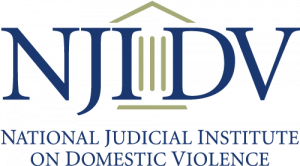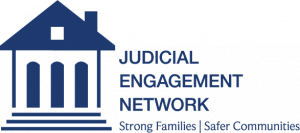The NCJFCJ has advanced social change in courts and communities nationwide by providing robust training, technical assistance, and policy development on issues related to the effects of abuse across a person’s lifespan. The NCJFCJ’s projects have enhanced the safety, well-being, and stability of domestic violence victims and their children by improving the responses of criminal, civil, and social justice systems.
The NCJFCJ Offers:
Tailored Training Assistance
Often, professionals seek our help putting together their individual presentations or designing multidisciplinary educational workshops. The NCJFCJ has provided assistance to judges and other professionals with its presentations on protection orders, elder abuse, child custody, and a host of other issues related to domestic violence. The NCJFCJ tailors materials and presentations to specific state, tribal, or local jurisdictions.
Research and Individualized Consultation
In addition to educational programming, NCJFCJ staff members (e.g., policy analysts, attorneys, and resource specialists) conduct research on case law, statutes, social science, and model court processes, provide individualized consultation on content, and troubleshoot situations. The NCJFCJ also maintains a resource library of toolkits, bench books and cards, policy manuals, and other publications for its constituents.
Judicial Education and Resources
The NCJFCJ provides education and resources to judges seeking to change practice in their courts and communities around how domestic violence cases are adjudicated. Educational topics and resources include child custody decision-making in domestic violence cases, protection order practices, including the seizure and storage of firearms, the overlap of domestic violence and child maltreatment, immigration issues, working with self-represented litigants, and judicial leadership.
The NCJFCJ offers education through the National Judicial Institute on Domestic Violence, a partnership with Futures Without Violence and supported by the U.S. Department of Justice, Office on Violence Against Women (OVW), which offers two multi-day educational programs: the Enhancing Judicial Skills in Domestic Violence Cases (EJS) Workshop and the Continuing Judicial Skills in Domestic Violence Cases (CJS) Program. In addition to EJS and CJS programs, the NCJFCJ provides the Enhancing Judicial Skills in Elder Abuse Cases Workshop, in partnership with Futures Without Violence, which provides state-specific replications of its EJS and CJS workshops, and designs and secures faculty for the family violence tracks at the NCJFCJ’s Annual and Juvenile Justice Conferences.
The Judicial Engagement Network (JEN), a network for judges, by judges, was launched in 2016 by the NCJFCJ and the Center for Court Innovation (CCI) with the support of the Office on Violence Against Women, to facilitate and encourage judicial excellence in domestic violence, dating violence, sexual assault, stalking, and abuse in later life cases. JEN identifies, connects, and brings together judges and judicial officers to promote cutting-edge judicial practices that result in better outcomes for these cases and families; provide opportunities for judges to create and hone their leadership skills to affect change in their communities; and support the sharing and passing of knowledge and expertise to the next generation of judges.
Model Code on Domestic and Family Violence
In 1994, the NCJFCJ promulgated the Model Code on Domestic and Family Violence (Model Code) to promote consistency across state lines in how domestic violence is handled in the criminal and civil legal systems. The Model Code is a comprehensive code on domestic violence that includes chapters on general provisions, criminal penalties and procedures, civil orders for protection, family and children, and prevention and treatment. It provides a framework for states to address domestic violence, and for states that have adopted this framework, in whole or in part, it represents a strong public policy statement of a commitment to recognize, address, and prevent domestic violence. Chapter 4, the family and children chapter, was the most groundbreaking and far-reaching because it elevated the safety of the victim and child above all other best interest of the child (BIC) factors, and it included a rebuttable presumption against awarding sole legal, sole physical, or joint physical custody to a perpetrator. The NCJFCJ worked collaboratively with national experts and national and federal partners to update Chapter 4 of the Model Code in 2022. The NCJFCJ focused on what the field has learned over the past 20 years and the impact these laws have had on victims and their children, and it is providing strategies and practices, based upon what the field has learned, to implement the revised section in a way that protects and prioritizes safety for victim parents and children.

